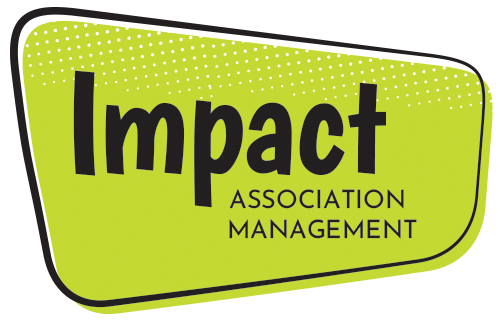Preparing for a recession should be something associations are thinking about during their strategic planning each year. This is something that, now, is coming into play more than ever. You might be wondering, how can Impact Association Management help our clients to successfully plan for an economic downturn?
Impact AMC can help!
Facilitate strategic planning and create a strategic plan, which considers and accounts for the possibility of an economic downturn. The organization will be much better off if this is done in advance rather than scrambling at the time.
Assess the historical impact recessions have had on membership, conference attendance, grant and partner funding, other key revenue sources and make recommendations based on this data.
o Should special membership pricing or discounts be in place for renewal?
o Should dues forgiveness be used for unemployed members?
o Are renewals automatic?
o Automate messaging leading up to conferences and renewals – why should they attend the conference or renew their membership? What benefits will they reap or haven’t they used yet?
Confirm their reserve model is prepared for risk.
Adapt content and messaging of member programming to reflect a near-term recession where appropriate.
o Marketing should still be happening! It just needs to be efficiently targeted.
o Reinforce the value of the association.
o Offer more networking and career assistance.
o What is the business case for attending the conference during an economic downturn?
o Is their a collaborative forum for members to proactively engage with one another? If not, now might be the time to roll this out. It’s a low cost/low staff time engagement tool for members. This can be done via Association Management Software (Wild Apricot) and LinkedIn or Facebook groups
Using data, identify which programs meet the members’ needs the most and ensure they’re recession-proof and can sustain future economic trends. These programs should reflect the association’s core purpose. Conversely, identify which programs should be cycled out and retired.
o These might be tough conversations, but they should be happening. Develop a way to assess program value and returns as well as when programs should be cycled out and retired.
Identify how your association can become a source of things your members cannot get anywhere else.
o What is the association’s niche? Is the board of director’s view of this the same as the association’s members?
o Hone into this and use it as a differentiator as to why people should join your association versus another one.
This might seem like a scary thing to deal with and something you only prepare for when the time comes. Being prepared, however, is what will help your association to thrive at a time that might seem unlikely.

